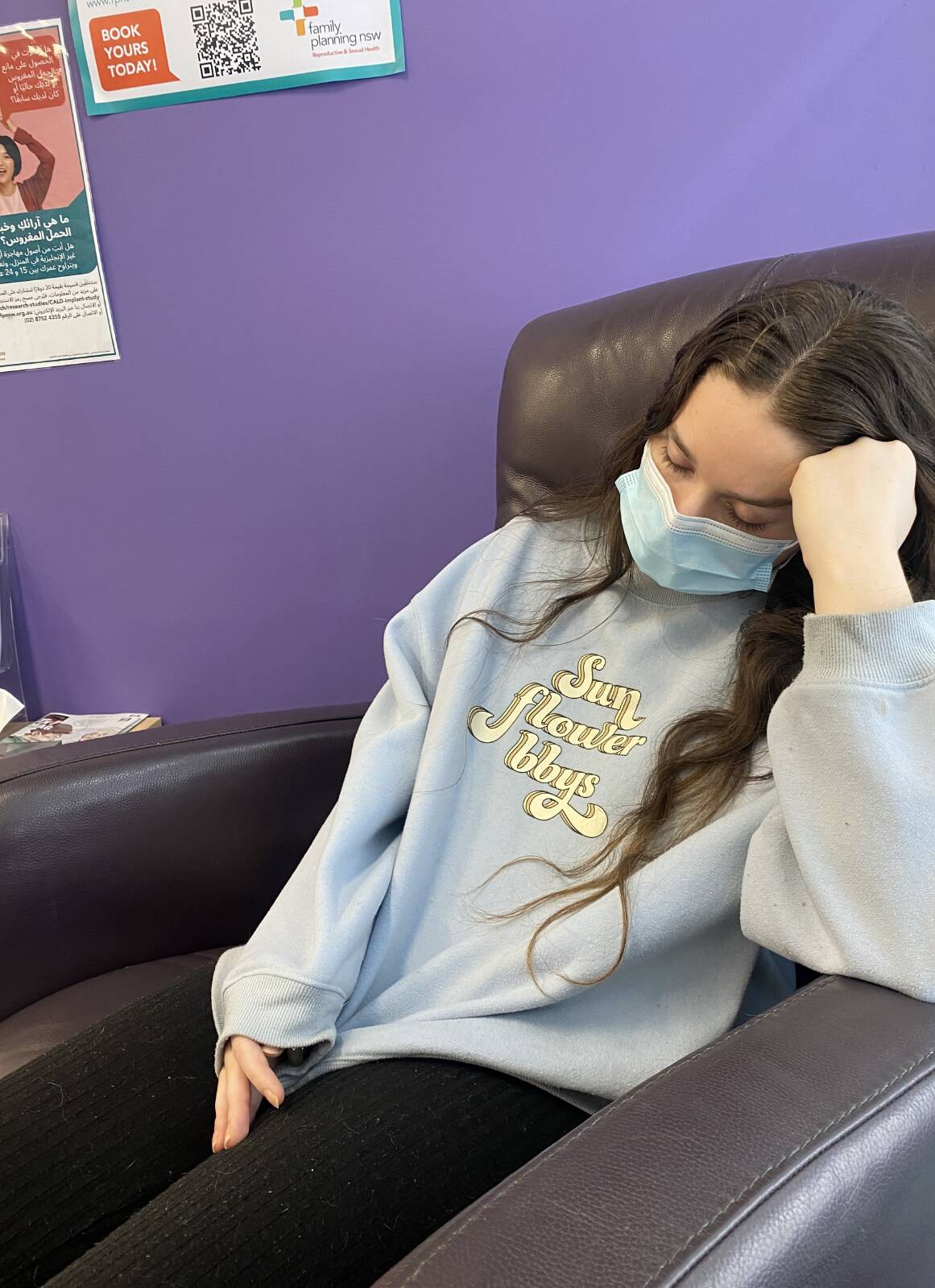



Mayfield's Alysse O'Brien has been in a living hell for two years, battling chronic illness and debilitating symptoms.
The 20-year-old has been diagnosed with myalgic encephalomyelitis/chronic fatigue syndrome (ME/CFS). The condition is known to follow an infection, similar to long COVID.
Alysse's mum Michelle Turnbull said blood testing showed her daughter had markers for Epstein-Barr virus, Ross River fever and the controversial Lyme disease.
Mrs Turnbull, a Newcastle-based psychotherapist, said she was shocked when her daughter received a positive Lyme disease result, after referral from a Hunter GP.
"Part of me didn't believe it because the government says it's not here," she said.
"How can she have a positive blood test for something that's not here? She's never left the country."
People can get Lyme disease if bitten by a tick carrying Borrelia burgdorferi bacteria.
Scientists have not found this bacteria in ticks or any other insect in Australia, according to the federal government.
People can contract the disease overseas, but it isn't transmitted between humans.
As such, the government does not support the diagnosis of locally-acquired Lyme disease.
Instead, it recognises patients with "debilitating symptom complexes attributed to ticks".
A Lyme Disease Association of Australia spokesperson said the federal government's stance on the issue left "patients with no diagnosis or treatment except symptom management".
"Many patients are subjected to medical gaslighting by practitioners," the spokesperson said.
"There is no appropriate Medicare support. Treatment is expensive. Many patients lose their superannuation, homes and life savings."
A GoFundMe page has been set up to raise the money needed to send Alysse to Mexico for treatment at the Sanoviv Medical Institute.
"We know other young people in Australia who have been there with Lyme disease and they're now well," Mrs Turnbull said.
Alysse said her condition was a puzzle that had "taken a massive toll on my body and caused a lot of health issues".
She lamented not being able to "dance, paint, cook, run, read, study or workout".
She had been in the "worst state" for "months at a time".
It got to the point where she "can't move my body, lift myself up or shower".
She had experienced "an immense amount of pain", where "you lose yourself and want to give up".
"I'm doing everything to get my health back and will come out of this 10 times stronger and have a whole new perception and appreciation for my health and life."
Professor Andrew Lloyd, an infectious diseases physician who heads the UNSW Fatigue Clinic, said ME/CFS was "most likely a disorder in the brain".
"We don't yet understand the mechanisms of disease and therefore we can't confidently say the problem lies in the brain or nervous system," Professor Lloyd said.
"Several decades of research in the fatigue business tells us it's probably in the brain."
Professor Lloyd said the immune system clears the bugs - viruses and bacteria - suspected of causing the syndrome usually within days.
Some academics have hypothesised that bugs may remain dormant in the body after an acute infection and become reactivated under various conditions.
But Professor Lloyd said the "available evidence" showed that neither the bugs nor the immune system in the body caused persistent symptoms beyond a month or two.
"We assume it's the immune response in the brain," he said.
Alysse is presently doing a brain retraining program.
"This involves participating in intensive rehabilitation, which focuses on rewiring the limbic system of the brain," she said.
She's also doing EMDR therapy. She hopes these treatments will get her well enough to fly to Mexico.
Emerge Australia, which supports people living with ME/CFS, said post viral infection was the most common trigger for the disease, but environmental toxins, physical trauma, genetics and physical stress might play a part.
Emerge chief executive Anne Wilson said "for some people, ME/CFS comes on suddenly".
"For others, there is a gradual onset over months or years. It is not currently understood why there are these differences in how the illness starts."
Ms Wilson said symptoms include "an abnormal physiological response to exercise, altered immune function, changes in gut bacteria and impaired energy production".
"It is a complex and disabling disease that affects many parts of the body, including the brain and muscles, digestive, immune and cardiac systems."
She said Australia's clinical guidelines for ME/CFS had "not been updated since 2002".
"These guidelines do not reflect the current understanding of ME/CFS, nor best practice for clinical management of the condition."
Up to 250,000 people live with the condition in Australia.
As for Lyme disease, a NSW Health fact sheet states it is "diagnosed based on symptoms, physical findings (such as a characteristic rash), and the possibility of exposure to infected ticks".
"Laboratory testing is helpful in the later stages of disease."
The fact sheet said tests for diseases in places where they're "rare or absent" will often be "falsely positive".
The Lyme disease association spokesperson said "thousands of Australians have the symptoms of Lyme disease" and some had the "tell-tale Lyme 'bullseye' rash after a tick bite".
"Many patients have positive Lyme pathology sourced from accredited overseas laboratories, as Australian labs use controversial testing standards and methodologies."
Mrs Turnbull said Alysse's Lyme diagnosis was based on observation and a symptom checklist, as well as a blood test.
She said Alysse had been denied NDIS funding.
"They say it's a medical issue, not a disability. We fall into this gaping hole. We can't access treatments or get disability support.
"We just have to keep trying different things. Alysse feels like an experiment."
To see more stories and read today's paper download the Newcastle Herald news app here.







